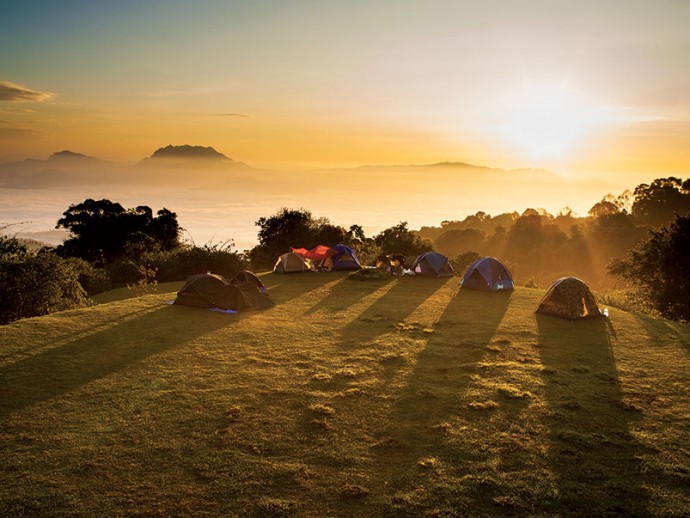
Can camping make you happier at work? It’s entirely possible. Spending prolonged time in nature can increase your satisfaction with your job, home and daily life.
Research shows that getting in touch with nature can play a crucial role in our well-being and vitality. Long-term association with nature may increase feelings of positivity and reduce rates of anger and anxiety. It’s even been observed that time with nature increases our productivity and sharpens our ability to focus—making a camping holiday the perfect mid-year refresher.
So whether you have a few days or a week this summer, make it your goal to get out and go camping. Your brain and body will thank you. If you keep your environmental footprint top of mind, nature will thank you, too.
Gear up
With the right gear, enjoying the wilderness doesn’t have to be a massive, environmentally damaging undertaking.
Look for gear options that don’t harm the environment during their manufacturing process. Choose tents made of recycled materials, free of toxic dyes and with solvent-free waterproof coatings whenever possible. Eco-friendly sleeping bag options abound; for example, some are made from recycled plastics.
Make sure that any soaps you use for showers or dishes are 100 percent biodegradable and free of sulfates, dyes or artificial scents—try a multipurpose soap to save packing space. Regardless of how natural the product, be sure to keep it out of waterways by dispersing onto dry ground to avoid integrating it into the surrounding ecosystem.
For food containers, use reusable BPA-free containers like glass or stainless steel whenever possible.
Shrink the footprint
To reduce your carbon emissions, try to pick a campsite as local as possible. If you have a long drive to your intended camping destination with an extra seat or two in the car, consider contacting the campsite to find fellow campers to carpool.
Hands off
Once you reach your campsite, don’t disturb any vegetation. Use ropes rather than nails to peg up tarps and tents. Store garbage securely to avoid attracting wildlife, and be sure to dispose of all waste in designated locations.
Although the quintessential vision of a camping trip often involves a fiery centerpiece, it’s best to keep campfires to a minimum. If you do make a fire, keep it well out of forested areas and don’t burn any pieces of wood thicker than your wrist. Completely extinguish all fires before you abandon them—the smoldering remains can spread and devastate ancient forests long after you’ve gobbled up your last s’more and walked away.
Minimize chemical use
Nothing kills a camping buzz faster than the high-pitched whine of an enamored mosquito. To minimize the amount of repellent you need to use, wear loose-fitting, tightly woven, light-colored clothing to stay off mosquitoes’ visual radars. Skip spraying on perfume, which can also pique their unwanted affections. Avoid camping near standing water if possible.






